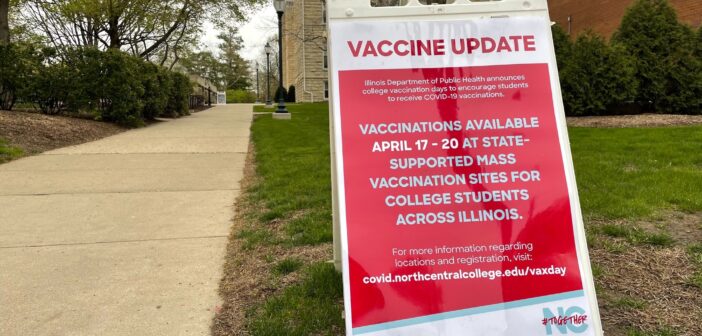With the rapid development of COVID vaccines, many people have hope that there will be an end to the COVID-19 pandemic sooner rather than later. Many experts strongly recommend that as many people as possible, including college students, get the COVID-19 vaccine to build herd immunity.
Building herd immunity
Building herd immunity through vaccination is necessary since COVID-19 is a new disease that no one has encountered before.
“Since no one had any immunity to it, the spread of the virus has been uncontrollably fast. However, by a large population getting vaccinated, we are creating dead ends. Lesser people will catch and transmit the virus to others,” said Jennifer Sallee, associate professor of biology.
Nevertheless, the rapid rate of the development of vaccines and rare cases of severe side effects reported have been sources of concern and hesitancy for some people. Though not totally invalid, almost all common myths surrounding vaccines are not true.
COVID-19 vaccine
The development of vaccines usually takes 10–15 years. Yet, due to the unusual circumstances of COVID-19, intense funding and effort have been directed toward the vaccine’s development. With funding, companies such as Pfizer, Moderna and Johnson & Johnson were able to start mass production of the vaccines while waiting for the results of the clinical trials.
Vaccine concerns
Severe side effects such as anaphylaxis and deaths are very rare. Yet, most side effects are minor and only last a few days.
“I just had a sore arm, but it only lasted for a couple of days. For the second dose, I didn’t have any reactions,” said Jocelyn Parra, ’22.
There are also concerns surrounding the very first use of messenger RNA (mRNA) vaccine technology.
Both Pfizer and Moderna use mRNA molecules that contain the information for our cells to read and produce the SARS-CoV-2 spike proteins. The spike proteins are produced and expressed in the outer layer of our cells. Our immune system then recognizes this and starts producing antibodies to target the cells with the spike proteins.
Moreover, since the vaccine only contains mRNA and not the whole virus, it is not possible to get COVID-19 from the vaccine.
Students’ vaccine opportunity
As of April 12, all Illinois residents age 16 and above have been eligible to receive the vaccine. This includes the College’s student population. NCC provided “College Vaccination Days” where students could sign up to get their vaccine.
Some students have been very excited about getting the vaccine, especially since “College Vaccine Days.”
“I think it’s a good thing to do for myself and for other people. And I thought so because I’m in an environment where I’m in contact with a lot of people,” said Dakshya Karki, ’22. “(After getting the vaccine), I don’t feel any different in particular. I don’t feel any different in terms of (COVID safety precautions).”
Some students see the importance of getting vaccinated as soon as possible. This motivation may stem from NCC and its goal of having all in-person classes for the 2021–2022 school year.
“It’s going to make it harder for COVID to spread and for variants to rise. (It’s) the same idea with public schools having different kinds of vaccines required before going to school,” said Fatima Alauddin, ’23.
Given the impact that the pandemic has had on our lives, the development and distribution of vaccines may not be the one-in-all solution. Nevertheless, with more and more people participating in building herd immunity, there is hope for the future.

